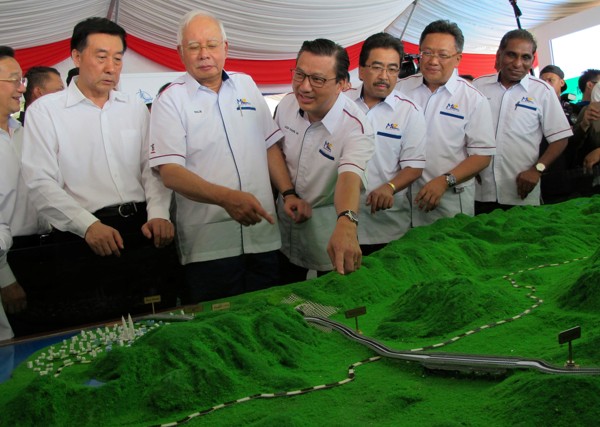
Chinese projects not expected to be derailed by Malaysian debt woes
Economists and analysts say that while some infrastructure investments are linked to ballooning debt, the government isn’t likely to pull the plug on them
Malaysia’s debt problems are unlikely to have any significant impact on Chinese investment in the country, according to analysts.
Many of the China-invested mega projects in the Southeast Asian nation are not linked to its national debt, they say, and Chinese projects do not make up a large portion of the liabilities – and the Malaysian government is not expected to terminate those that are part of the debt.
Controversy over the country’s mounting debt has been swirling this week, with new Prime Minister Mahathir Mohamad saying it had reached 1 trillion ringgit (US$251 billion). On Friday, the finance ministry provided a breakdown showing that federal government debt and liabilities amounted to 80.3 per cent of the nation’s gross domestic product.
Mahathir blamed the situation on the corruption of the previous Najib Razak administration, who, the new prime minister claims, abused the country’s finances for personal gain.

The debt woes have sent markets into a panic this week and left investors unnerved about the future of the Malaysian economy.
It has not been made public how much of that debt is held by Chinese entities, but economists and analysts say there are links to some infrastructure projects with investment from China.
They include the 55 billion ringgit East Coast Rail Link (ECRL) funded by the Export-Import Bank of China and a 4.5 billion ringgit oil and gas pipeline in Sabah, also backed by the Exim Bank.
Other big Chinese projects such as the Forest City development are not classified as debts but investment, said Ngeow Chow Bing of the Institute of China Studies at the University of Malaya.
Ngeow said the Malaysian government would likely work to reduce the cost of the infrastructure projects, but that would not derail them.
“The new government probably wants to renegotiate with China on ECRL in particular, especially in bringing down the cost and the amount of the loan. If it takes the step of terminating the project, this will likely involve a huge amount of compensation,” he said. “My assessment is renegotiation is more likely than termination.”

During a tense election campaign, Mahathir pledged to re-examine all China-led projects approved by Najib if he were elected, citing Forest City, a massive real estate project in the state of Johor, as an example. China’s ambassador to Malaysia Bai Tian told the new prime minister in a meeting on Thursday that both nations should continue cooperation, state-run Xinhua reported.
Yew Wei Lit, an assistant professor in Asian and international studies at City University of Hong Kong, said criticism of the Chinese projects was mainly to do with economic risk and concerns about corruption and not generating enough jobs for locals.
“Many opposing voices, especially from civil society, are really more concerned with corruption than with China per se,” he said.
But the new Malaysian administration would be pragmatic about maintaining ties with China, he said.
“It has no intention to antagonise China, whether in security or economic relations,” Yew said, adding that Mahathir needed China as “a hedging strategy towards global powers”.
Tham Siew Yean, a senior research fellow at the ISEAS-Yusof Ishak Institute, said the public debt scandal could dampen the country’s appetite for foreign infrastructure projects, but not for investment more broadly.
“I think the government will continue to be open to foreign direct investment and will be cautious about incurring more debt for the short and medium term,” she said.

